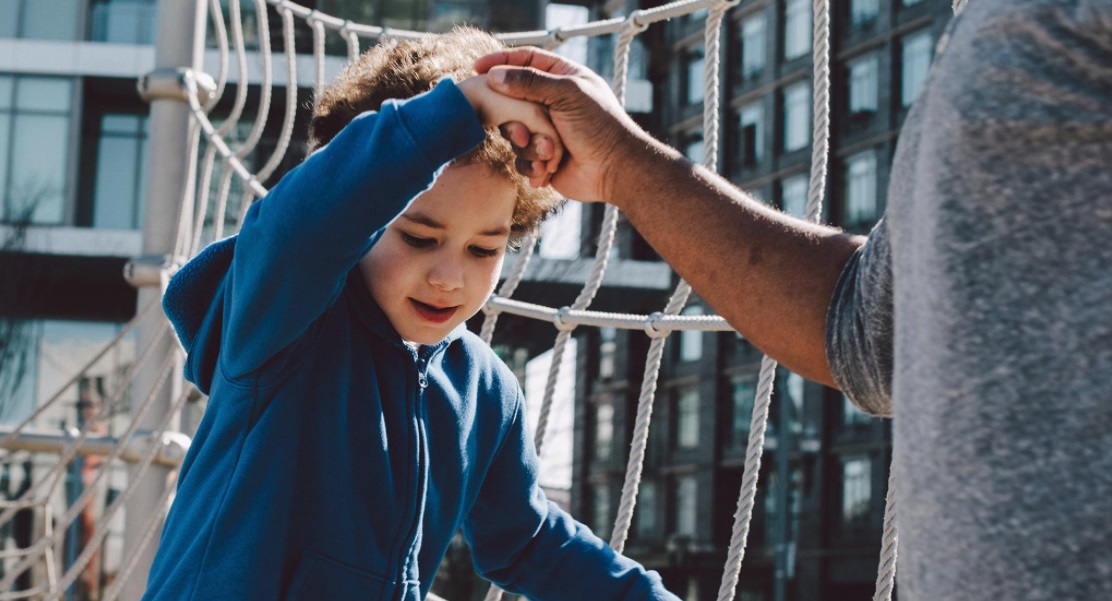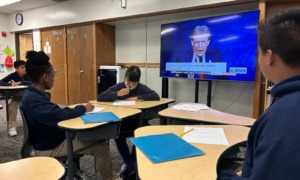
Matthew Sorensen
.
Imagine if we could give every child in foster care a consistent, caring adult who walked alongside them for 12½ years, no matter what. It could change the face of the foster care system. This is our vision, and we know it is possible because Friends of the Children has been doing it for 25 years.
Entrepreneur Duncan Campbell grew up in a low-income neighborhood of Portland, Oregon with a tumultuous family life. After finding success as a timber investor, he wanted to help kids who grew up in environments like his. As Campbell has a deeply curious and data-driven mind, he commissioned extensive research. It indicated that the strongest single protective factor a child can have is a close, healthy and sustained relationship with a caring adult, especially an adult who has positive expectations for the child and involves him or her in meaningful activities.
Armed with research, Campbell and his wife Cindy made the initial financial investment and founded Friends of the Children in 1993. A radically different mentoring program, Friends of the Children began with three full-time, salaried, professional mentors — called Friends — serving 24 children. Twenty-five years later, Friends of the Children is now in 15 locations across the country and in the U.K. Friends stay with each child from kindergarten through high school graduation – 12½ years, no matter what.
Moving mentorship out of the volunteer realm is a key component to getting the quality, consistency and commitment that our children need, and it has been remarkably effective with youth in foster care. Upwards of 40 percent of the youth we serve have experienced out-of-home placements, either through formal foster care or through informal placement with kin.
Evaluations on youth who complete the Friends of the Children program show that:
- 85 percent of our program youth graduate high school, whereas only 55 percent of youth in foster care graduate high school or obtain a GED diploma.
- 93 percent of our program youth avoid the juvenile justice system, but only 63 percent of youth in foster care avoid incarceration.
- 98 percent of our program youth avoid early parenting, whereas only 86 percent of youth in foster care avoid early parenting.
Social-emotional skills
We work with our children across all life settings — at school, at home and in the community — so that we’re able to see the whole child and advocate for them so that nothing slips through the cracks. This is especially critical for children who are in foster care. Amidst the chaos of entering foster care, changing schools, changing households, court hearings, visitations and other appointments, children in foster care often don’t have that consistency, let alone the chance to be kids.
As a result, they can struggle to gain the social-emotional skills needed to thrive and build positive relationships, let alone do well in school. With this in mind, we empower our youth through social-emotional learning to ensure they are equipped with skills to persist in achieving their goals and building the healthy supportive relationships they need to be successful in school and during their transition to adulthood.
We also work with our youth in foster care to create an identity outside of the system. They aren’t just “foster care kids” in our eyes. They are individuals who are capable of doing great things. They are our future leaders. Simply put: They are the future.
Early findings from a third-party randomized control trial show that youth in the Friends of the Children program are strengthening relationships with caregivers and are on track for healthy development into their adult years. Parents with children in the Friends program have more positive perceptions of their children’s behavior, and our youth are exhibiting more pro-social and less disruptive, noncompliant behaviors.
Our outcomes with youth in foster care have gained the attention of big-name foster care reform funders such as Ballmer Group and Pritzker Foster Care Initiative. In 2016, Friends of the Children received a federal grant from the Social Innovation Fund, a program of the Corporation for National and Community Service, totaling $4 million over four years, to expand its evidence-based program to reach more youth in foster care and high-poverty, high-crime neighborhoods across the country. This funding was the catalyst for a national expansion campaign.
To truly see and empower these youth, we need to change the national narrative around foster care. We envision a country where we all share the long-term responsibility for the lives of children who experience foster care. We realize that this work will take years, but we also believe that change is possible.
Terri Sorensen is the president of Friends of the Children, a national nonprofit that selects the most vulnerable children ages 4-6 from high-poverty schools and the foster care system and pairs them with a Friend. She oversees strategic direction, fundraising, expansion and evaluation for the network.
























